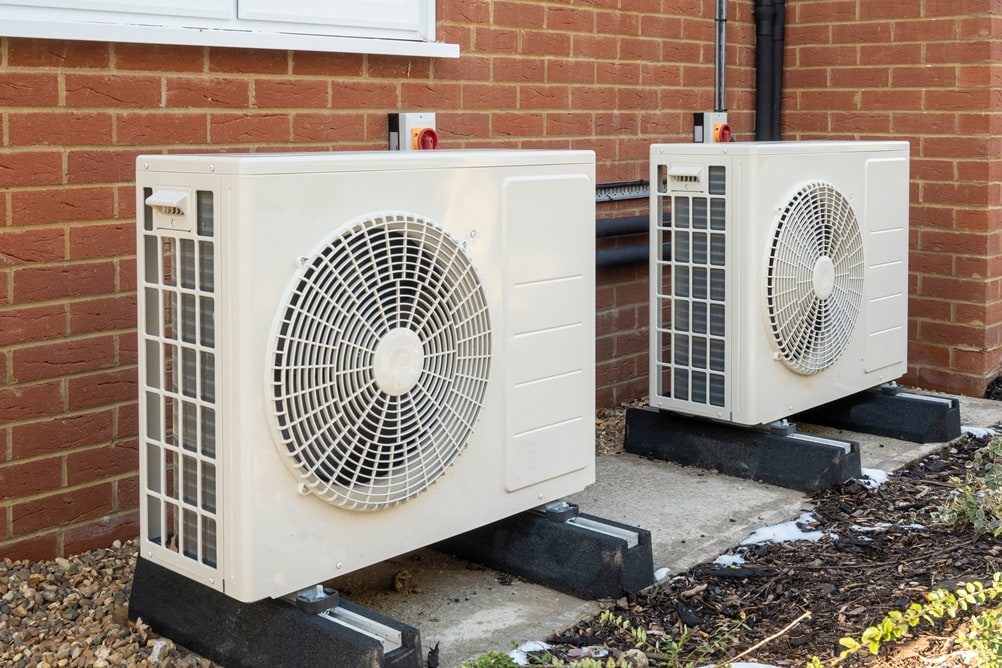Heat Pump Installation or Replacement: Santa Rosa HVAC Specialist Explains How and Why they Work
Considering heat pump installation or replacement? Santa Rosa CA based JW Hanson Heating and Air Conditioning are the North Bay experts. This post, the first in a series on heat pumps, is from Will Hanson as he discusses what heat pumps are, how and why they work.

Heat pumps are an energy-efficient way to maintain year-round air comfort in your home.
Heat pumps are not new technology. Although, until recently, the percentage of homes utilizing a heat pump system had been relatively low.
Before the idea of getting away from fossil fuels was a concern, the main reason behind installing a heat pump system was generally due to the home being in a rural location where natural gas was not available.
However, in the past, a more common solution would have been to install a propane or a diesel tank and fuel system to serve the home and allow gas fired appliances to be installed.
In my 25+ years in the HVAC industry, I have seen heat pump technology change dramatically. Early on, as an Apprentice, I was introduced to fixed speed heat pumps. This older, simpler technology is still available. However, modern heat pumps are superior for many reasons.
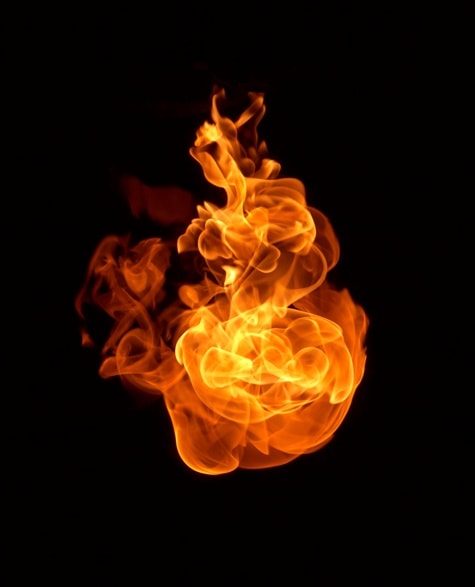
There are many reasons that the term “heat pump” might be on your mind. It has become a big deal in California, and to a lesser degree, the rest of the country. So, what are they? How do they work? Why are there so many incentives to use them? And, most importantly, what is different about them?
Let’s start with the reason to use a heat pump as opposed to a gas-fired appliance. The goal is to get away from carbon-based fuel to heat our homes, our water, and our businesses. The simplest way to do this is to use electric resistance heat. It is effective and very basic.
However, it consumes a lot of electricity to do the job, and this is where heat pumps stand out. Heat pumps take the same KW of power that an electric element uses and deliver 2 – 10 times the heat energy to the water or air that needs it. In some cases, they perform at a ratio even better than 10 – 1!
How do they do this? We can start with a familiar example. Everyone has experienced an air conditioner. A heat pump is the same basic principle, only reversed.
An air conditioner does not make cold air; it removes heat from the air. This is the basis for all heat pump technology. We are moving heat energy from A to B. An air conditioner absorbs heat inside the home. A blower pushes air over a refrigerant coil and then returns it to the home with less energy in it. The refrigerant carries the heat outside where it is compressed, forcing it to release the heat.
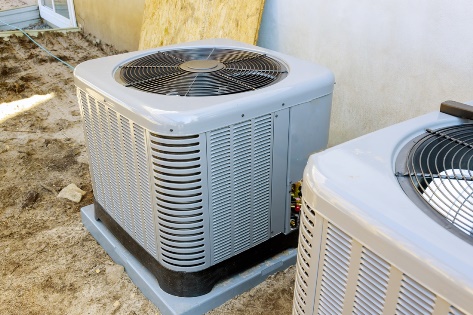
If you take the same idea and reverse it, you have created a heat pump. A heat pump absorbs the heat energy from outside and uses the refrigerant to bring it inside. So, instead of using a chemical reaction—“fire”—to make heat or using electrical resistance to create heat, we are simply moving it.
A common question is, “How does that work in cold weather?” The key here is to not confuse our perception of “warm” with the availability of heat energy. Heat energy is always there.
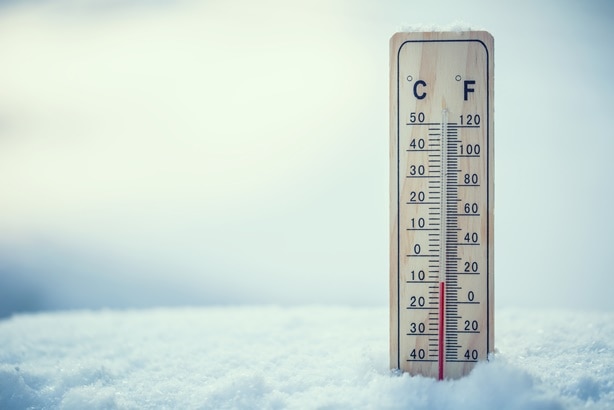
The only time there is no heat available is at absolute zero, which is not a temperature you will ever see on a thermometer.
In cold weather a heat pump needs to absorb and compress heat at a higher rate to ensure the home is comfortable.
But, that just means more air over the heat exchanging coil outside and a higher refrigerant compressor speed.
Heat Pump Types
For most Californians, the air-to-air heat pump would replace a typical forced air system that uses a gas fired furnace (with or without A/C). This is the most conventional and currently the most available form of heat pump. The equipment that is currently on the market for this application can easily heat to a temperature that makes a home comfortable and is available in both ducted and ductless models.
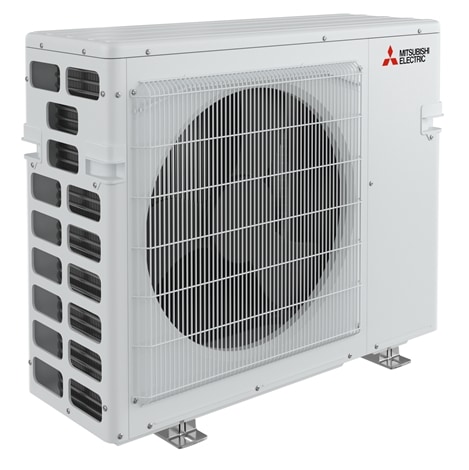 The second application that often comes up is changing over to a heat pump water heater. This is a little bit harder as we need water in the 120–130-degree range in a home and, for most heat pumps, 137 degrees is the absolute maximum temperature water that can be achieved.
The second application that often comes up is changing over to a heat pump water heater. This is a little bit harder as we need water in the 120–130-degree range in a home and, for most heat pumps, 137 degrees is the absolute maximum temperature water that can be achieved.
This means a heat pump water heater is working at the upper end of its ability all the time.
The third and least common application is an air to water heat pump for space heating. This sounds like another water heater, right?
Well, it is, but there are two significant differences. First, the necessary temperature is often higher. If the heating system uses low temperature water for a fan coil or radiant heating, the water temperature is similar to normal domestic water heating.
However, most space heating systems that use water require a temperature range of 140-180 degrees. The only heat pump type that is capable of these temperatures for this application is a C02 based system, which unfortunately does not offer many options.
The second major difference is the amount of energy necessary to run these systems. A domestic heat pump water heater in a home has a very small heat pump attached to the tank which is capable of 4,500 BTU. A split domestic heat pump, such as the example in the first application, is capable of 15,000 BTU.
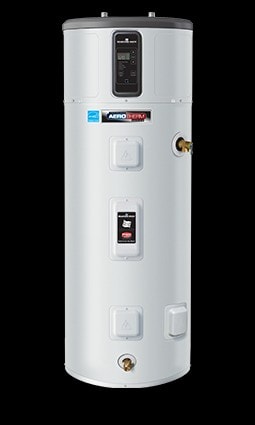 A space heating air-to-water heat pump needs to be capable of far more than this to replace a gas fired boiler, which usually starts at 50,000 BTU, but goes much higher. Although technology is progressing, there is not yet a heat pump replacement for a steam boiler.
A space heating air-to-water heat pump needs to be capable of far more than this to replace a gas fired boiler, which usually starts at 50,000 BTU, but goes much higher. Although technology is progressing, there is not yet a heat pump replacement for a steam boiler.
Heat pump technology is changing fast, and I expect new equipment that is more capable and efficient to become available as demand increases.
They are now becoming more common, and homeowners are looking to upgrade their space heating equipment to more efficient and environmentally friendly systems. However, it should be noted that California has mandated that, as of January 1, 2030, gas fired heating systems will no longer be available for sale or installation.
For answers to your questions about heat pump replacement or repair, contact JW Hanson at Schedule an appointment 707-538-3329.

